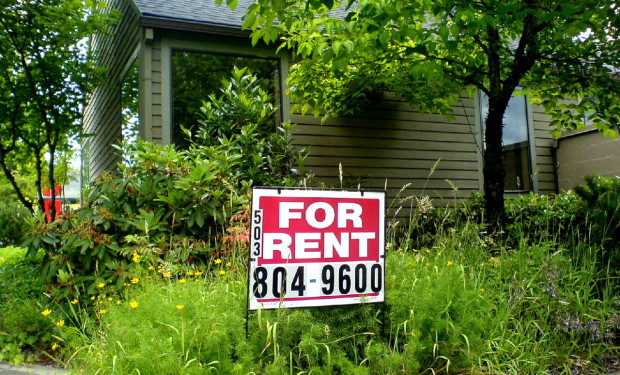Opening your home to overnight visitors could open the door to a lawsuit
Airbnb is an online service and mobile application that allows users to connect by opening up their homes to temporary visitors. It is a quick way to profit, but conflicting state law may put a quick stop to the popular service.
Chris Dannen thought he merely was engaging in the current “sharing economy.” He needed help paying rent in his three bedroom apartment, so he offered the spare bedrooms for rent through Airbnb, a website and mobile application that allows users to connect by arranging private home rentals, whether it be renting a studio apartment for a night or an extravagant villa for a month.
Things went smoothly for Dannen in the beginning. For about a year, he rented the two extra bedrooms in his Brooklyn apartment and made $20,000, charging $65 a night for each bedroom. Although covering his rent was no longer an issue, a much larger issue was looming.
One day, Dannen heard a knock at his door and instead of being greeted by a new renter, he was handed a notice that his landlord was issuing a restraining order, demanding that he stop renting out rooms. He also received printout copies of his Airbnb profile and customer reviews. Dannen was evicted just ten days later. He admitted that he was not in compliance with his lease when he rented out the spare bedrooms in his apartment. It turns out, however, that he also was playing in a gray area of illegal activity.
Any apartment that is rented out for fewer than thirty days if the occupants are not also present is illegal.
New York City, for example, has “hotel laws” in place that make it illegal for property owners to rent out their homes temporarily. These laws state that apartments are to be used strictly as private residences and may not be rented out temporarily for hotel purposes. Any apartment that is rented out for fewer than thirty days if the occupants are not also present is illegal. A majority of Airbnb host homes are rented out while the owner is away.
Another concern is safety. According to industry leaders, “home-sharing services like Airbnb aren’t held to the same fire and safety standards as hotels and don’t pay the roughly 15% in lodging taxes.”
In 2013, New York Attorney General, Eric Schneiderman subpoenaed data regarding 15,000 Airbnb hosts in New York that Schneiderman believed to be in direct violation of state law. Airbnb publicly objected to what it called an overreaching “fishing expedition” that courts typically prohibit. The company filed a twenty-four-page petition (pdf) that not only objects to the subpoena but also attacked New York’s hotel tax as unconstitutional.
Regarding the subpoena, Airbnb argued that it would require the worldwide company to “extract hundreds of thousands of separate records spanning millions of cells [and] preparing this data would take a significant amount of dedicated employee time across multiple company departments within Airbnb.”
“Airbnb is not standing up for average New Yorkers who rent out their apartments from time to time; Airbnb is standing up for highly profitable, illegal businesses.”
In November of 2013, about a month after Airbnb’s objection to the subpoena, Schneiderman stated that Airbnb was exaggerating about how much customer data it would have to retrieve and how time consuming this project would be. Furthermore, Schneiderman argued that the subpoena applied only to people breaking the law. “Airbnb isn’t standing up for average New Yorkers who rent out their apartments from time to time—Airbnb is standing up for highly profitable, illegal businesses that make up a huge chunk of its corporate revenue.”
Furthermore, “the NYAG is entitled to a presumption of good faith in issuance of subpoenas, and recipients of subpoenas must comply unless the subpoena seeks documents that are ‘utterly irrelevant’ to the inquiry.”
Airbnb continues to be uncooperative with releasing data, but Skift, a travel news site and market research firm, commissioned Connotate, a data extraction and monitoring firm, to examine Airbnb’s New York listings over the course of a month.
The results indicated that most users prefer to rent their entire home or apartment rather than just a single bedroom. Unfortunately, it is this renting of the entire home that is illegal under New York state law. The results also indicated that much of Airbnb’s revenue comes from hosts who manage more than one property, “which indicates a certain level of professionalism.”
Lawmakers did not foresee moneymaking opportunities that would arise in a shared economy.
Airbnb opted not to respond directly to the numbers released by Skift, but in February, the company released its own numbers, stressing the impact the company has had on the economy in New York’s five boroughs. The article illustrated, for example, that Manhattan has 10,500 hosts and 276,800 guests. Airbnb’s total economic impact is listed at $528 million, showing an increase of $123 million in local households and $361 million in local businesses.
While these numbers illustrate the benefit of companies such as Airbnb, they do not reflect the economic loss brought on by unpaid taxes. Attorney Janelle Orsi, director of the Oakland, California-based Sustainable Economics Law Center and author of Practicing Law in the Sharing Economy, says that lawmakers did not foresee moneymaking opportunities that would arise in a shared economy. While many lawmakers are now seeking to put a stop to companies such as Airbnb, Orsi believes that people should be able to use these companies to earn money.
“I think what we’re seeing is a reaction that the sharing economy doesn’t fit the traditional frameworks. Some of the reactions, like New York wanting to ban Airbnb activities, are too extreme,” says Orsi.
Homeowners and renters have the right to share their homes through “accessory use.”
Orsi agrees that when homes are being rented frequently and homeowners and renters are profiting significantly, a yearly occupancy tax should be imposed. But where is the line drawn? Homeowners and renters have the right to share their homes through “accessory use,” a “zoning term that refers to the ways people customarily and incidentally make use of their homes.”
Chicago lawmakers, for instance, are requiring Airbnb users to obtain a business license, which costs $250 for two years. Homeowners and renters also must pay the city’s 4.5 percent tax that accompanies the business license. “In addition, renters are required to obtain fire, hazard, liability, and general commercial liability insurance, as well as maintain current guest registration records.”
Because every city and state has different laws regarding homeowners’ and renters’ rights, as well as individual business owners’ laws that could apply to Airbnb users, it has been difficult to determine a single solution.
Airbnb recently offered to pay taxes in cities that are requiring Airbnb users to pay an occupancy tax. In a letter to the mayor of New York City, the company said that, if legalized, its host would pay about $21 million a year in state and city taxes. While lawmakers appreciate the effort, they say the solution is not as simple as Airbnb paying a lump sum in taxes to cover its users.
Much remains to be determined about the implications of using Airbnb. Many former users, including Dannen, have benefitted from Airbnb but have also faced a legal penalty due to state law. Making an extra buck certainly is appealing, but that appeal may disappear when opening the door to strangers opens up a door to a serious lawsuit.








